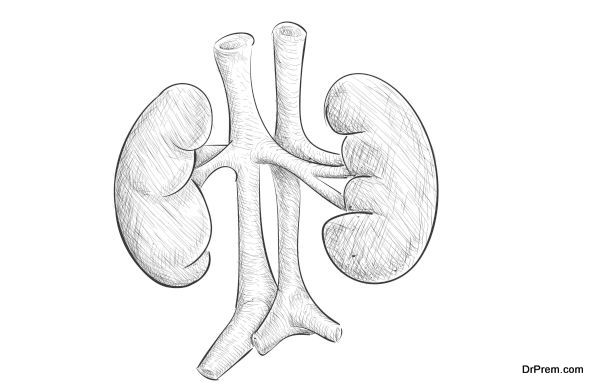Kidney Stone: Prevention
Top Prevention
1. Fluid intake
Intake of adequate fluids will prevent the body from getting dehydrated. Dehydration can lead to low and very concentrated urine output. The mineral and fluid imbalance in the urine will then lead to stone formations that can be threatening and very painful. To avoid such instances, you should drink adequate amount of water, a minimum of 2 liters a day, to keep the urine flow normal and toxic levels in the body to a minimum. Intake of adequate fluids in the form of water and other juices will encourage urine production and also reduce the concentration of urine, thereby preventing kidney stone formation.
2. Exercise
Sometimes, the amount of toxins in your body too can cause kidney stones. To keep the toxic waste from getting accumulated in your body, you can include adequate exercise in your daily routine along with sufficient intake of water. Try to take up simple exercises like brisk walking, jogging, swimming etc. which will make you sweat and eliminate waste from your body. It is important to shower after a particularly sweaty session to remove the toxic deposits from the surface of your skin.
3. Lemon juice
The acidity of lemon juice is strong enough to melt the most stubborn of kidney stones. However, lemon juice will have to be taken diligently every day without water for best results. Taking on an empty stomach is best advised as the acidity will be at its height in such cases. However, regular use of lemon juice may spoil your teeth and hence it is important to swallow the lemon juice without allowing it to touch your teeth.
4. Beverages
Though certain beverages like colas and other soft drinks may actually harm patients with susceptibility to kidney stones and those with stones due to the phosphoric acid content that reduce the levels of citrate in the urine, other beverages like wine, coffee, tea etc. can actually help in reducing the risk of kidney stones in people. However, for patients who have kidney stones due to uric acid, wine may not be a good choice as wine contains purine which can cause uric acid deposits in the body, leading to kidney stones. You must also be careful about the quantity of beverages you take without going overboard.
5. Controlling underlying conditions
Certain conditions and diseases make people more prone to getting kidney stones. When this is the case, it becomes even more important to prevent the occurrence of stones rather than wait for the symptoms to trouble you and seek treatment. Conditions like hyperthyroidism, certain cancerous formations and sarcoidosis must be treated with medications to control the occurrence of kidney stones. Sometimes, surgical removal of the parathyroid gland is essential for preventing kidney stones in hyperthyroid patients.
6. Raw vegetable juices
Intake of vegetable juices, like radish juice and lady’s finger (okra) juice, is known to be a preventive method for kidney stones. Radish can be included in your daily diet in the form of salad or a juice. Slice lady’s fingers into smaller pieces and soak in drinking water overnight. This water can be taken every day to combat the occurrence of kidney stones.
7. Restricted salt and protein intake
The amount of calcium in urine is increased with salt intake and hence salt intake must be restricted to less than 3 grams a day in patients with calcium stones. Protein too can cause problems as the citrate levels in the urine will be reduced and the levels of calcium, oxalate and uric acid will be increased, all of which can lead to kidney stones. Meat protein is known to be more dangerous than vegetable protein due to its higher sulphur content. Therefore, you must consume meat protein and salt in moderation for preventing kidney stones.
8. Restricted calcium intake
Though dietary calcium may not be so much of a causative factor in forming kidney stones when consumed in moderation of up to 1,300 mg, based on the age and many other factors, calcium supplements in excess of 2,000 mg may clearly lead to kidney stones. It is therefore advisable to stick to dietary calcium unless specifically suggested by a doctor.
9. Purine restriction
People with a risk of developing uric acid stones must restrict purines in their diet. Foods and beverages containing purines like oils, organ meat, alcohol, legumes, mushrooms, spinach, cauliflower, asparagus, sardines, herring etc. must be avoided or consumed as little as possible. Salad dressings, fried foods and ice creams too must be avoided in such cases.
10. Fiber intake
Intake of fiber is known to benefit patients with a predisposition towards kidney stones. Certain fibrous foods also contain beneficial compounds that can help reduce the risk of kidney stones. A variety of high fiber plants are known to contain phytates that help to prevent crystallization of oxalate and phosphate stones, which fall under the category of calcium stones. These compounds are found in rice bran, wheat, etc.
11. Stress management
Stress is directly linked to the formation of kidney stones and, hence, practicing certain stress reduction techniques will help in keeping your risk under control. Include meditation and yoga practices and add deep breathing techniques like inhaling and exhaling deeply for 10-15 seconds when faced with stress in your everyday routine to remain relaxed and free from diseases.


